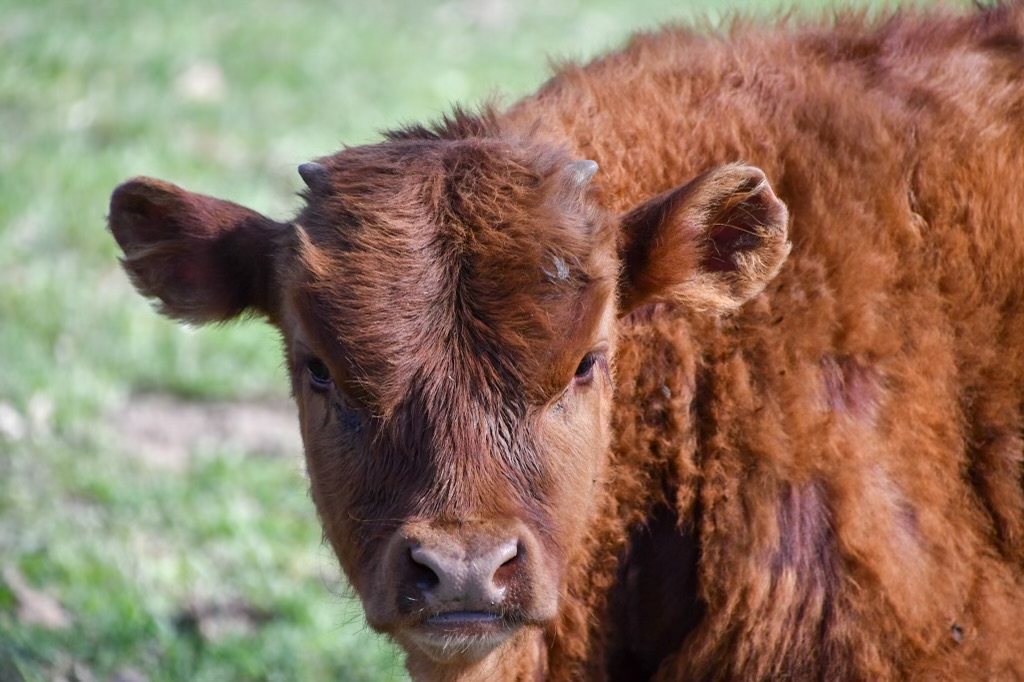
Courtesy of Sweet Tree Farm

Courtesy of Sweet Tree Farm
As the first rays of dawn shine upon his farm each morning, Arleigh Johnson is already awake and tending to his animals. Consisting of chicken, pigs, crops, and over 280 cattle, Sweet Tree Farm is located in Carlisle, New York. Johnson has worked on the 200-acre farm for longer than he can remember. “I mean, as a young child, I could sell somebody a steak and teach them how to cook it even though I’d never cooked one myself before,” he says with a laugh. He discusses the stigma surrounding the negative environmental impact of the meat industry and highlights how Sweet Tree Farm is combating these impressions.
Johnson’s family-owned farm is committed to sustainable farming methods. Aside from providing 24/7 access to high-quality feed and water, which he casually describes as the “bare minimum”, Sweet Tree goes above and beyond to ensure creature comfort. “We try to give them as much space as possible, whereas with factory farming you wouldn’t always have the amount of space we are offering… it’s not just good for the animal, but it’s good for business,” Johnson says. “If an animal feels comfortable, they’re going to grow more muscle and fat, which is what we want for meat production. So, it’s to our benefit to give them the best lives that we can.” Sweet Tree’s use of USDA approved slaughterhouses is one way they ensure expert care for the animals from the beginning to the very end.
In contrast, the most common method of meat production is through Concentrated Animal Feeding Operations, or CAFOs. These are facilities, typically indoors, where a large number of animals are raised on a high-grain diet in a very confined space. These operations aim to maximize the efficiency of large-scale meat production, but the tradeoffs include many environmental threats.
One of these threats is water pollution. Water pollution is caused when the massive amounts of animal waste created at CAFOs leaches into waterways. This contributes to nutrient pollution, which ultimately leads to “dead zones” in bodies of water where aquatic life struggles to survive. Through sustainable agriculture, this is less of a risk because of grazing cattle’s dispersed waste. This not only diminishes the severity of water pollution, but positively contributes to nutrient cycling and land health.
Another significant threat created by CAFOs is enormous greenhouse gas emissions. These emissions are created through any form of raising cattle but can be significantly reduced through sustainable agricultural practices. Well-managed grazing systems, like the one at Sweet Tree Farm, help to sequester carbon before it makes its way into the atmosphere. Johnson emphasizes the importance of cover crops, stating that “all of the land that we farm stays planted; the soil is never bare.” This land management strategy helps to protect the nutrient rich topsoil from being eroded through rainfall. This enriched soil is very important for the health of plants and largely contributes to their growth and development. This is a contrast to CAFOs, since the majority of these facilities are indoors and do not have any method of carbon sequestration to counteract the massive amounts of greenhouse gasses that they produce.
Johnson’s Saturdays are spent at the Troy Waterfront Farmers Market. His family was one of the first vendors that participated in the market and have now been selling their products each weekend for over 22 years. The market, consisting of over 100 vendors, has as many as 15,000 visitors on a single day of business. Steve Ridler, the manager of Troy Waterfront Farmers Market, talks about the market’s mission of sustainability. “The Troy Waterfront Farmers Market is part of the growing trend towards a change to environmental responsibility,” he says. “Big picture, local produce is more sustainable!”
Johnson cites his time as a vendor as one of reasons that the farm, once consisting of just two cows, was able to expand to their current 280 cattle. “Back then we had two cows, Mama and Baby, who are now both buried on the farm,” Johnson remembers, thinking of the humble beginnings that have grown into a thriving family business. In addition to being more sustainable than CAFOs, grass-fed beef is seen to have many health benefits over grain-fed beef, including higher vitamin content and lower levels of saturated fat. These higher quality goods are clearly appreciated, since Sweet Tree has many loyal customers who come to the market week after week to buy their products. Sweet Tree Farm is a pioneer of environmentally conscious agriculture. Through their ethical choices and transparent practices, they demonstrate a commitment to sustainability and a strong respect for their animals. As environmental conditions continue to worsen, it becomes even more important to recognize the people who are working to create a positive change that reaches far beyond themselves.